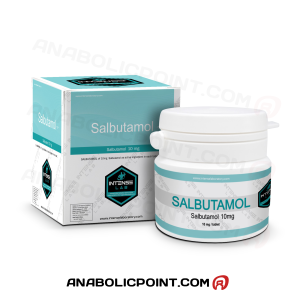Your basket is currently empty!
How Steroid Legalization Could Reshape Global Markets
Steroid legalization is a topic of intense debate, stirring discussions about its potential impact on health, society, and economics. While anabolic steroids are currently controlled substances in many countries due to their health risks and potential for abuse, a shift towards legalization could bring transformative changes to global markets. From regulating production to opening new economic opportunities, legalizing steroids would create ripple effects across industries, sports, healthcare, and law enforcement.
This article explores the implications of steroid legalization, analyzing how it could influence global markets and reshape societal attitudes toward performance enhancement. It also delves into the challenges and opportunities associated with such a significant policy shift.
Understanding the Current Steroid Landscape
Why Are Steroids Restricted?
Anabolic steroids mimic the effects of testosterone, promoting muscle growth and athletic performance. While they have legitimate medical uses—such as treating hormonal deficiencies, muscle-wasting diseases, or delayed puberty—their misuse can lead to serious health issues. Heart disease, liver damage, hormonal imbalances, and psychological effects like aggression are common risks. These dangers, coupled with the potential for abuse in competitive sports, have led to strict regulations in most countries.
The Black Market and Its Consequences
The restrictions on steroids have created a thriving black market. Unregulated sales of counterfeit or low-quality steroids pose additional health risks to users. The illegal trade also supports organized crime networks, perpetuating broader societal harms.
The Potential Benefits of Steroid Legalization
A Regulated Market
Legalizing steroids would bring their production, distribution, and sale under regulatory oversight. This would ensure quality control, reducing the health risks associated with counterfeit or impure substances. Consumers would have access to standardized products with accurate dosage information.
Economic Opportunities
A legal steroid market could unlock substantial economic opportunities, generating revenue through taxation and creating jobs in production, distribution, and retail. This mirrors the financial success seen in industries like cannabis, where legalization has turned illicit trade into a legitimate economic sector.
Advancements in Research
Legalization could lead to increased research into the therapeutic and performance-enhancing potential of steroids. With fewer restrictions, scientists could explore new applications, refine dosage recommendations, and develop safer alternatives.
Impact on Law Enforcement
Decriminalizing steroids would reduce the burden on law enforcement and judicial systems. Resources currently allocated to combating steroid trafficking could be redirected toward addressing other pressing societal issues, such as opioid abuse or violent crime.
How Global Markets Could Transform
Pharmaceutical Industry Expansion
Legal steroids would likely become a significant segment of the pharmaceutical industry. Companies could develop a range of products tailored to medical, recreational, and performance-enhancing needs. This expansion would drive innovation and competition, benefiting consumers with better products and lower prices.
Sports and Fitness Industry Revolution
The fitness and bodybuilding industries would undergo a seismic shift. With legal access to steroids, athletes and enthusiasts could pursue performance enhancement without the stigma or legal repercussions. However, this could necessitate reevaluating regulations in competitive sports to ensure fairness.
Insurance and Healthcare Systems
Insurance companies would need to adapt to a new landscape where steroid use is more common. Coverage plans might include consultations, monitoring, and potential treatments for side effects. Healthcare systems could also benefit from better-informed patients seeking medical advice before steroid use.
International Trade and Policy Harmonization
Global markets would face challenges in harmonizing policies across borders. Countries with legal steroids could become export hubs, driving international trade. However, discrepancies in regulation might lead to tensions, similar to those observed in the cannabis trade.
Challenges to Steroid Legalization
Public Health Concerns
Despite potential benefits, critics argue that legalization could normalize steroid use, leading to increased misuse and associated health problems. Education and awareness campaigns would be crucial to mitigating these risks.
Ethical Questions in Sports
Legal steroids would raise ethical dilemmas in competitive sports. Governing bodies would need to reconsider doping regulations, potentially redefining what constitutes fair play. This could polarize opinions among athletes, fans, and policymakers.
Regulatory Complexity
Establishing a robust regulatory framework for steroids would be a complex task. Governments would need to address issues such as age restrictions, advertising regulations, and licensing requirements for manufacturers and distributors.
Social Perception and Stigma
Legalization might not immediately eliminate the stigma surrounding steroid use. Public attitudes could take years to shift, particularly if negative stereotypes about users persist.
Lessons from Similar Markets
Cannabis Legalization
The cannabis industry offers valuable insights into the potential impact of steroid legalization. In countries where cannabis is legal, governments have successfully reduced black market activity, increased tax revenues, and promoted safer usage practices. However, challenges like inconsistent regulations and public health concerns remain relevant.
Alcohol and Tobacco Regulation
The regulation of alcohol and tobacco also provides a blueprint for managing legal steroids. These industries are heavily taxed and monitored, with restrictions on advertising and usage. Adopting similar strategies for steroids could help balance economic benefits with public health priorities.
Future Scenarios: A Global Perspective
Optimistic Outlook
In an ideal scenario, steroid legalization leads to a well-regulated market that minimizes health risks, generates economic growth, and promotes scientific advancements. Public education campaigns effectively address misuse, while international cooperation ensures consistent policies.
Pessimistic Outlook
If poorly managed, legalization could exacerbate health problems, increase social inequalities, and create regulatory loopholes. Without adequate oversight, the market might fail to curb black market activity, undermining the intended benefits.
A Balanced Path Forward
The most likely outcome lies somewhere in between. Success would depend on proactive policymaking, informed by evidence from other industries and continuous engagement with stakeholders, including medical professionals, athletes, and consumers.
FAQs About Steroid Legalization and Global Markets
- What are the main arguments for legalizing steroids?
Advocates highlight improved safety through regulation, economic benefits from taxation, reduced black market activity, and opportunities for medical and scientific advancements. - How could steroid legalization impact the black market?
Legalization would likely reduce black market activity by providing a safer, regulated alternative. However, some illicit trade might persist if prices remain high or regulations are overly restrictive. - Would legalization increase steroid use?
Legalization might lead to a short-term increase in use, but education and responsible regulation could mitigate long-term risks. - How would competitive sports adapt to legal steroids?
Sports organizations might need to revise doping policies, potentially allowing regulated use or creating separate categories for enhanced athletes. - What role would taxation play in a legal steroid market?
Taxation would generate revenue for public services, including education and healthcare programs related to steroid use. - Could legalization improve public health outcomes?
Yes, by ensuring product quality, educating users, and encouraging medical supervision, legalization could reduce the health risks associated with unregulated steroid use. - What challenges would regulators face?
Governments would need to establish clear policies on manufacturing, distribution, advertising, and age restrictions while addressing ethical concerns. - How might global trade change with steroid legalization?
Countries with legalized steroids could become major exporters, but differing regulations might create trade barriers and policy disputes. - What can we learn from cannabis legalization?
The cannabis industry demonstrates the potential economic benefits of legalization but also highlights the importance of addressing public health concerns and regulatory inconsistencies. - What would be the societal impact of legal steroids?
Legalization could reduce stigma, promote safer usage, and shift societal attitudes toward performance enhancement, but it would also raise ethical and health questions.
Envisioning a New Paradigm
Steroid legalization has the potential to reshape global markets, from pharmaceuticals and sports to healthcare and international trade. While the challenges are significant, the opportunities for economic growth, public health improvements, and scientific advancement make the discussion worth pursuing. Achieving a balanced approach will require careful planning, robust regulations, and a commitment to addressing ethical concerns, ensuring that the benefits of legalization outweigh its risks. As the debate continues, societies must weigh the costs and benefits of embracing this transformative change.













